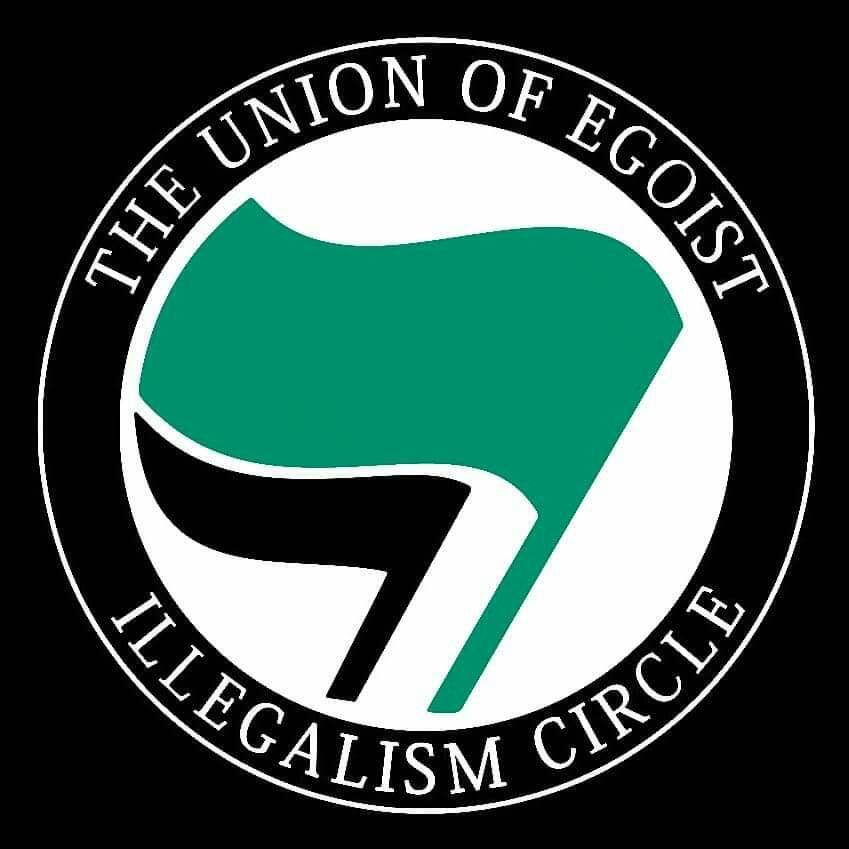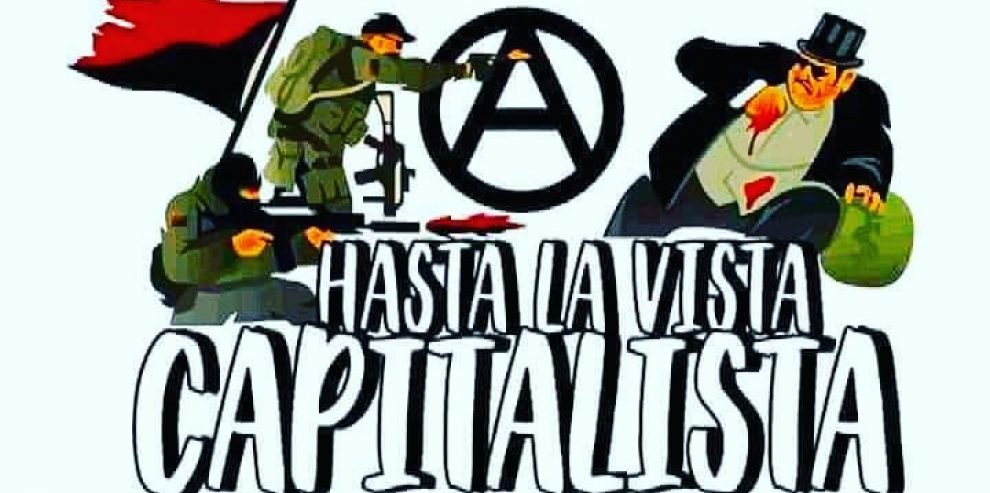
“For anarchists our ideas come from action. Our ideas are action and action, revolutionary anarchist action, is theory.” – Jean Weir
“Liberty belongs to him who takes it” – Max Stirner
“It is not by organizing into parties and syndicates that one struggles for anarchy, nor by mass action which, as has been shown, overthrows one barracks only to create another. It is by the revolt of individuals alone or in small groups, who oppose society, impede its functioning and cause its disintegration” – Enzo Martucci
While the crypto-liberals favor reform and stick to civil tactics the subversive anarchist creates the life she wants and fights domination through direct action.
Direct action is a force to create change in a person’s life. It is empowering, it gives individuals an opportunity to fight back at their exploiter and oppressor, or can give the means to create a new life and new ways of living. Direct action can be carried out by all sorts of means and for different reasons.
When used to carry out a conflictual action, direct action carried out to its fullest creates points of conflict (where the individual or individuals carrying out the direct action meet the subject they are against head on). It is individuals taking action for themselves, not waiting or wanting someone else to do it for them, it is total empowerment. Direct action is the opposite of voting and delegation, it is taking power into one’s own hands, it is the power to create change. It is creating and living the life you want here and now. There is no room for mediators, every person taking part is fighting their own struggle. They are not seeking help from politicos or union bureaucrats to represent them.
Direct action can take many forms, it can be big or small. Direct action doesn’t necessarily have to be (but can be) firebombing a bank or throwing a molotov at cops. It can be graffiti,a banner drop, occupations, blockades, guerrilla gardening, sabotage, etc. Direct actions can be carried out for all shorts of needs, for example squatting a house, shoplifting for food or cloths; can be an attack against exploitation for example a wildcat strike in the workplace. Direct action can be an act of sabotage to resist injustice or oppression, or a direct action can be a sit down protest to block traffic on busy roads or lock ons useful for stopping work, boycott actions, etc, etc. The list and possibilities are endless – alls one needs is a little imagination. Direct action is defining your own goals, aims, and achieving them through your own efforts.
As much as the leftists love to feitishize “mass organisations” there is no need for such large scale formal organization with set structures and roles. Direct action can be carried out by a single individual or small groups of 2, 3, 4 or more individuals, using minimalized informal organisation. This method is usually carried out by small numbers of people who have prior knowledge of one another and have a shared interest in carrying out a specific action or task. As soon as the action is complete the informal organization dissolves. If individuals involved in the informal organization or group want to carry out more actions, nothing is stopping them to reorganize again with the same or with different people.
Leftist anarchists fear informal organising seeing informal hierarchies emerging as a direct result of being “unorganised”. They believe the only way to counter informal hierarchies forming is by having formal organisations with formal structures and positions. Hierarchies can form within formal organisations just as easily as within informal, the only cure for combating informal hierarchies is by challenging them and try keep them in check when they appear. With formal organisations and groups hierarchies usually get set as part of the structures and are easier to be hijacked and open to manipulation by opportunists.
In struggles against the state and capital when trying to push points of conflict to their fullest, crypto-liberals can be a very dangerous enemy. They will undermine pushing points of conflict with the state because ultimately they are not against the state; for the anarcho-leftists their excuse can be afraid to “alienate the people” from their theories and programmes. Some liberals even go as far as viewing pigs and screws as “workers in uniforms”. In most part liberals are against the use of direct action although at times (when popular) they do opt for very controlled and milled actions, they will usually liaise with the police, the courts, or any other body of the state they need to. These actions (if they can even be called such) are more so political stunts not carried out for empowerment but more so to publicize themselves.
Crypto-liberals favor more passive tactics such as petitions, pickets, protest marches or lobbying. At these pickets and protests they will always have negotiators on standby to go into talks with the state; and ask for permission to hold protests. The crypto-liberals work within the parameters set by the state, never stepping outside of the terrain which the state allows them. These useless tactics go nowhere and achieve nothing; liberals pacify struggles and actions. Their reformism is a failure, it has done nothing but kept this society intact.
Act for yourself, build, take, steal the life you want, fight for your liberation, on your own terms, no one will do it for you. One things for sore the liberal lefties aren’t going to do it for you.
The struggle for liberation is always an individual struggle. This rotten society with its institutions and systems of domination will only be destroyed by a revolt of conscious individuals in the fires of social insurrection.
This may never happen……. on till then…….. my struggle and revolt will go on…….
